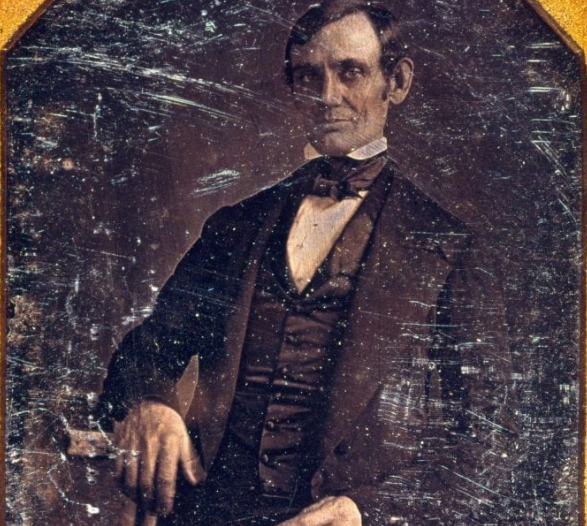Nothing was going as he’d hoped. The dream of governing that had sustained Abe Lincoln through a bleak youth he now saw, at age 40, in 1849, and after a term in Congress, to be a venal and hollow nightmare. He’d accomplished nothing in the House of Representatives. He had become friendly with President Taylor but Taylor then passed over Lincoln for the cabinet position Lincoln wanted — Land Office Commissioner — because Lincoln dared to question Taylor on his handling of the Mexican-American War. Taylor demanded fealty, and so the Land Office post went to another man in 1848. That job carried within it Lincoln’s lifelong hope of building the roads that would develop the poor communities in Illinois he’d served, communities so similar to the ones he’d known as a boy in Kentucky. He had spent his life wanting to leave his mark on the lives of everyone, and now back in Illinois, without public office or prestige, Lincoln despaired over how little he’d done in his decade in politics. “I hardly ever felt so bad about any failure in my life,” he wrote, and this from a man who had a few years earlier felt so bad about life that friends took away any knives he owned. Now, as he roamed his house, Lincoln was in the deepest depression of his career. He didn’t think he would ever return to government.
Law was the other thing he knew. But cases had grown more complex in his political absence. They reflected the budding maturation of the country. Over his career Lincoln had made good money as an attorney, which meant he could perhaps fake an expertise now, maybe cash in on what little caché he had. He could learn what he needed to learn and get by, live days of quiet steadiness, a man of no notable standing but a provider for his family. That was at least more than his own father had been.
He didn’t like that option either, so he started again with what he knew. He was 40 years old and without direction or purpose. If he was going to do good work in any field he would need to dig deep within the wet viscera of his life and look critically at everything he pulled out, and from all angles.
The choice he made was the hardest one before him. We often lionize resilience in the face of adversity but there was something else, something more essential, going on with Lincoln’s self-assessment during his midlife crisis. It’s an approach we can all follow now, in a crisis that’ll define the rest of our lives. What we can learn from Lincoln will help us in our time.
#self-improvement #hope #creativity #history #psychology
